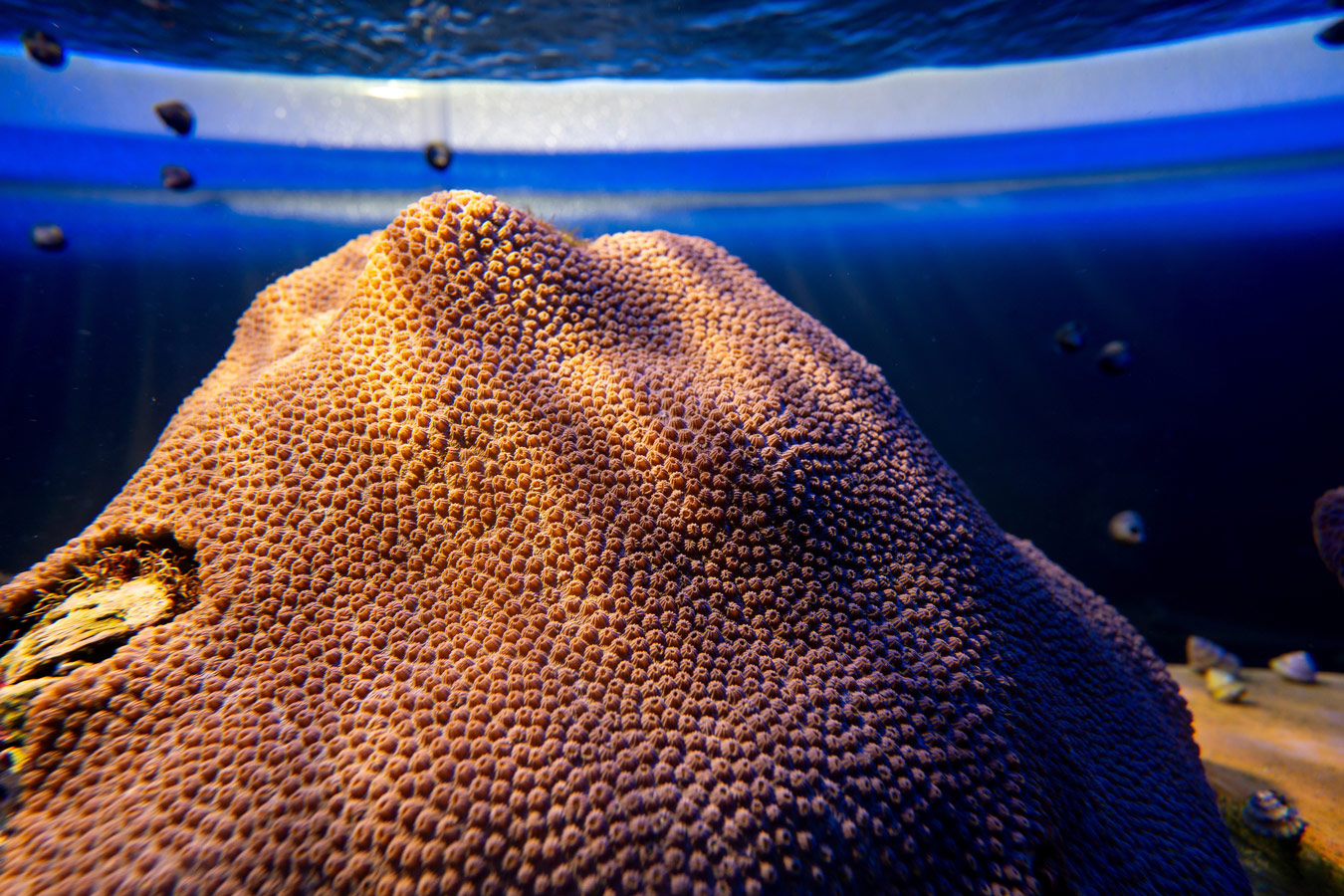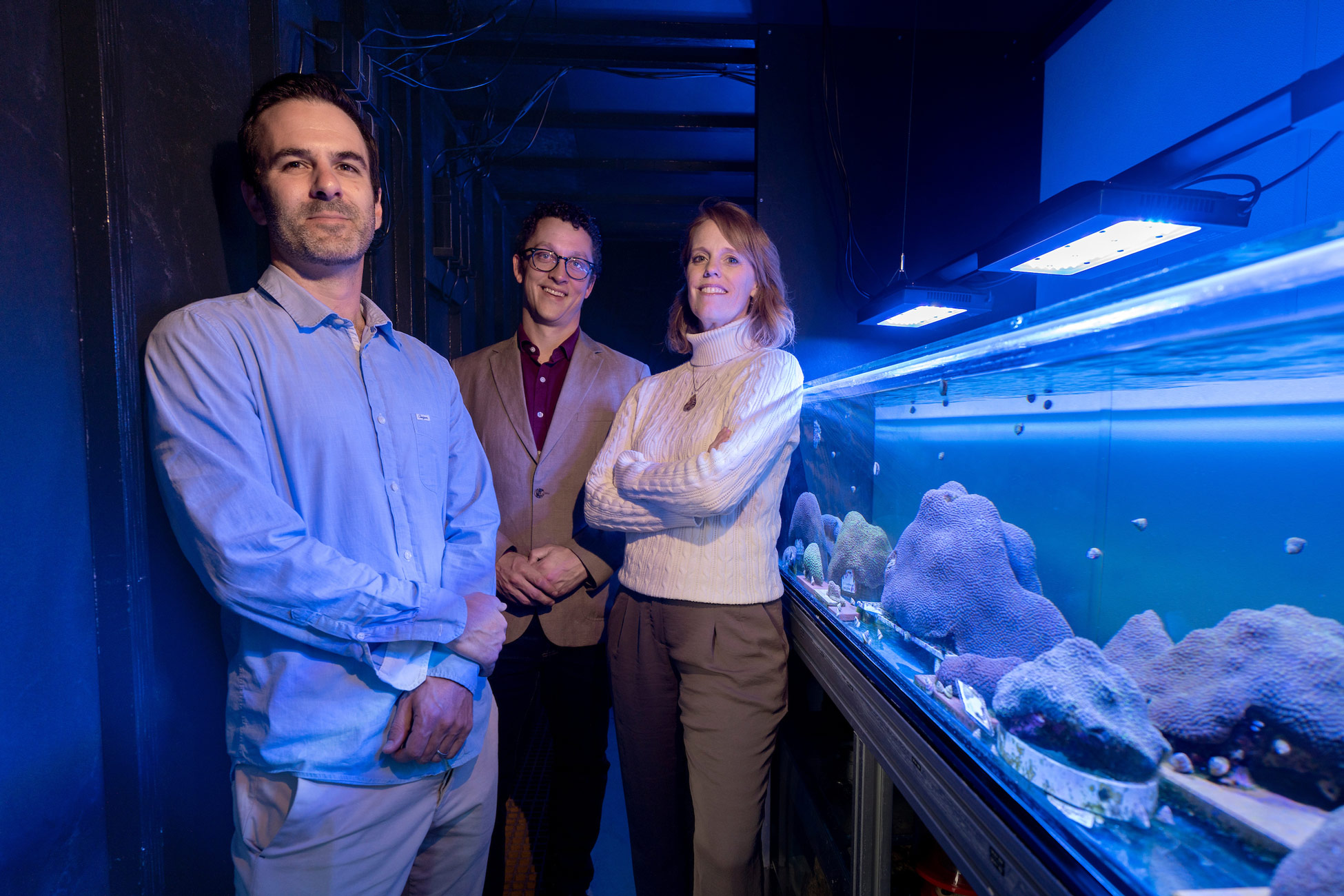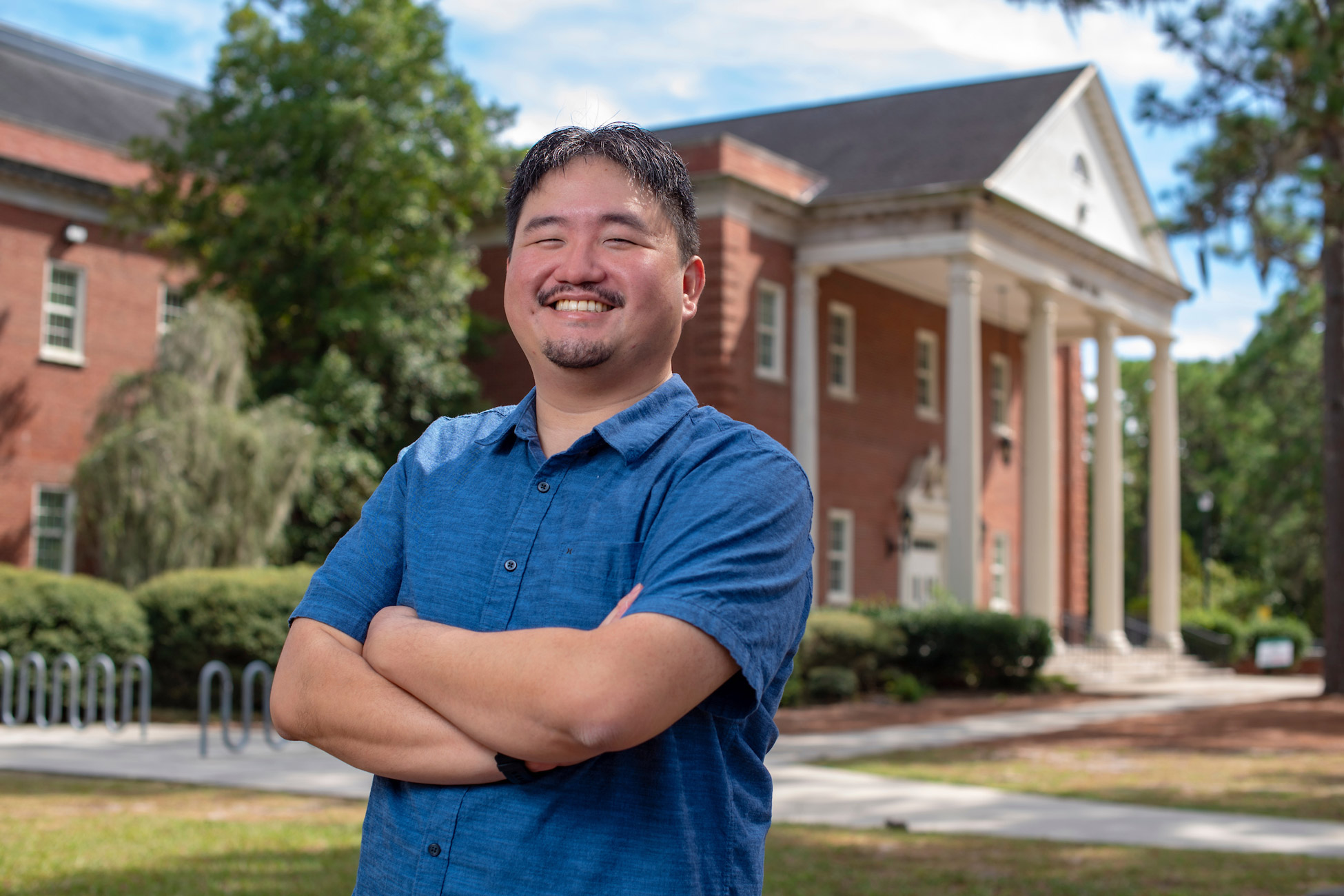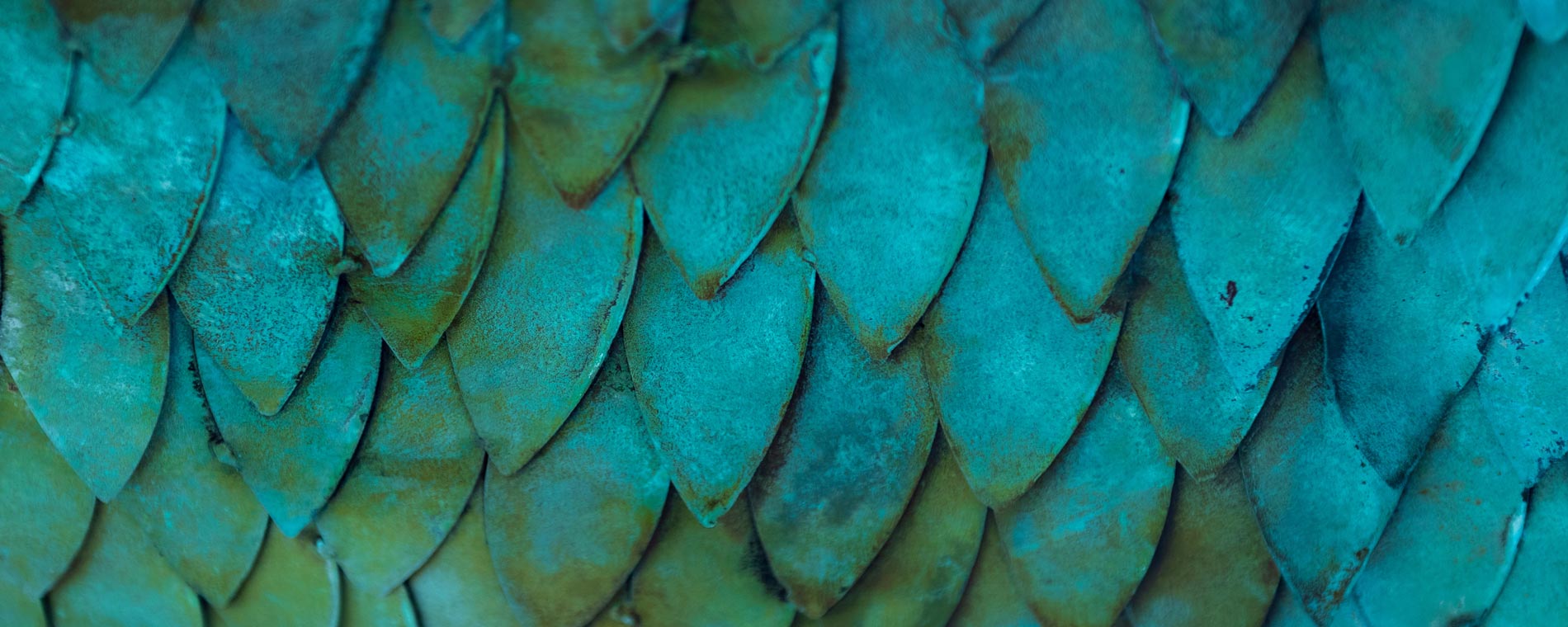
Photo: Jeff Janowski/UNCW
Four UNCW faculty will receive nearly $2 million to advance their research to help save the world’s endangered coral reefs. The Coral Research and Development Accelerator Platform (CORDAP), a global organization formed by 17 of the Group of Twenty (G20) nations, awarded UNCW two of 14 grants totaling $18 million to fast-track worldwide research and development for coral conservation and restoration.
Genetically Engineered Coral

The first UNCW award, nearly $1.5 million over three years, will fund a multidisciplinary team that is using transgenics to combat threats to corals from rising ocean temperatures. It includes Department of Biology and Marine Biology faculty members Nicole Fogarty and Jacob Warner and Department of History Associate Professor Nathan Crowe, in collaboration with researchers from the University of the Philippines. The team will use cutting-edge genetic engineering technologies, such as whole-genome sequencing and CRISPR, to identify and insert specific genes into corals to make them more tolerant in warmer waters.
“The world’s coral reefs are in crisis,” said Warner, a developmental geneticist who has pioneered new techniques for genetically modifying marine organisms. “The Intergovernmental Panel on Climate Change (IPCC) estimates that coral reefs could decline by up to 90% if global warming trends continue. We desperately need new genetic tools to study coral resilience in the face of this threat, and this grant allows us to do exactly that.”
The UNCW team is racing to raise and spawn corals in captivity. Fogarty’s lab at the UNCW Center for Marine Science is at the forefront of successfully spawning and rearing tropical Atlantic corals. Together with support from graduate and postdoctoral students, the researchers are striving to produce a new generation of genetically modified corals that can withstand rising ocean temperatures.
Crowe, a historian who has written extensively on the history and ethics of biotechnologies, is tasked with weighing whether such genetically modified corals pose unforeseen risks if they are ever released into oceans. His ethical and risk assessments for the project will inform policymakers as they decide how to responsibly move forward with this new technology.
“While we have been genetically engineering organisms for a long time, doing so to combat climate change, particularly in a marine environment, presents new circumstances to evaluate for risks,” Crowe said. “It is important that we think through these issues before the technology is developed, not afterwards, as we often have in the past.”
Probiotics Protection

The second UNCW award, a nearly $413,000 portion of a larger $1.5 million grant, will fund the ongoing coral research of Department of Biology and Marine Biology Assistant Professor Blake Ushijima, who is partnering on this project with Valeria Pizzaro from the Perry Institute of Marine Science and researchers from University of Massachusetts Lowell and various Colombian organizations (CORALINA, Blue Indigo Foundation and Ecomares). Their team is developing probiotic treatments to protect coral against stony coral tissue loss disease (SCTLD), a devastating disease that is rapidly killings Caribbean corals.
SCTLD afflicts at least two dozen species of so-called “hard corals,” which provide essential habitat for innumerable fishes and marine animals of economic and intrinsic value, while also helping to defend coastlines from storm damage. Currently, there is no treatment that can prevent healthy corals from becoming infected. Once a coral is infected, a colony of polyps can die within weeks.
Ushijima said the CORDAP grant will fund a second probiotics testing site in the Caribbean.
“This is just one more part of a larger, Caribbean-wide effort to develop probiotic solutions,” he said. “There is no other major coral probiotics research to treat SCTLD being done in the U.S. that is not linked to our UNCW lab or our collaborators, and we are the ones directly working with the groups developing the testing sites in the Caribbean.” Currently, collaborators at the Smithsonian Marine Station at Fort Pierce and Nova Southeastern University are testing some of the first coral probiotics on wild corals in Florida.
Some of Ushijima’s other projects advancing coral probiotics research include:
- Participation in Revive & Restore’s Advanced Coral Toolkit program to develop a probiotics isolation and screening pipeline
- Collaboration with environmental groups in Montserrat to build the first non-U.S. site in the Caribbean for coral probiotics testing
- Building the Dominican Republic Marine Innovation Hub, which will include coral nurseries and lab space to support large-scale coral conservation and restoration efforts. This will be Ushijima’s third coral probiotics testing site.
To learn more about UNCW’s research on coral conservation and restoration, visit the researchers’ websites:
This article has the following tags: Research & Innovation CSE - College of Science & Engineering


